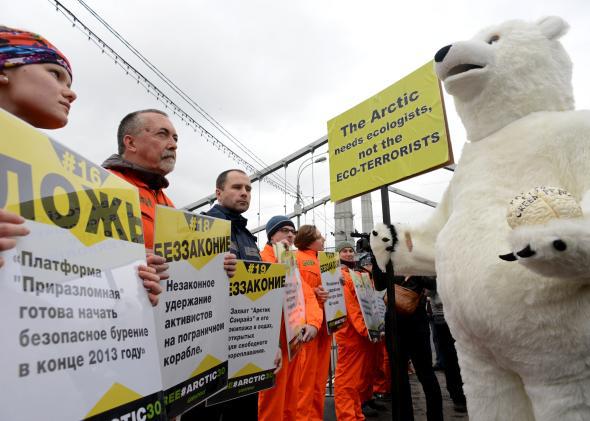Russia has dropped the legally implausible charge of piracy against 30 Greenpeace activists who attempted to scale an Arctic oil platform last month and replaced them with charges of “hooliganism.” The downgrade comes several weeks after President Vladimir Putin suggested that piracy charges shouldn’t apply in the case. The new charges are still pretty serious however, carrying a possible sentence of seven years as opposed to 15 for piracy.
The activists now join an august group of Kremlin critics who have recently faced the hooliganism charge, including billionaire Alexander Lebedev and the band Pussy Riot. The term is also one of the Kremlin’s favorite all-purpose insults, used to describe everything from uncooperative journalists to U.S. monetary policy.
The idea of “Huliganstvo” has a long pedigree in Russia dating back to at least the early 20th century, when it was used to describe the violent ultranationalist “Black Hundreds.”
In any case, as I discussed earlier this month, the piracy charges were always a bit of a stretch as the Greenpeace activists weren’t aiming to steal anything and didn’t commit any violence. Under Russian law, hooliganism is a much more versatile charge.
